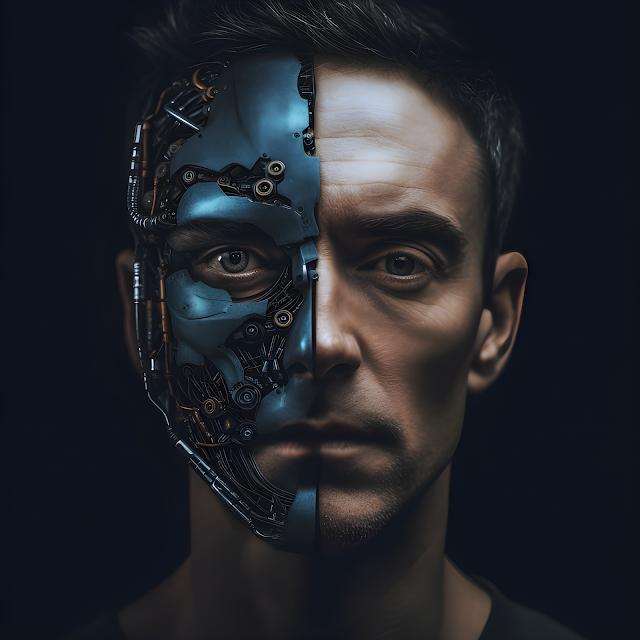Unveiling the Ethical Dilemma of AI: Navigating the Tunnel Vision of Tech Development Teams
 |
| Do you trust AI? Or Human? - Generated via MidJourney |
The rapid advancement of AI has raised concerns about the ethical implications and potential risks associated with its development. One concern is the "silo culture" within tech development teams, where their intense focus on their specific field of expertise may lead to overlooking the broader impact and ethical implications of their AI systems. This tunnel vision can inadvertently neglect the consequences of their work.
The opacity involved in training AI models adds to the complexity. The training process is challenging to scrutinize, making it difficult to predict how AI systems will behave in real-world scenarios. This lack of transparency raises concerns about the potential surprises and unintended capabilities of AI systems.
Suppression of concerns within large corporations is another worrying factor. The case of a software engineer being fired for raising concerns about self-aware AI exemplifies how open dialogue and identification of potential ethical issues can be stifled in favor of protecting intellectual property. This suppresses internal discussions and inhibits the resolution of ethical concerns.
Debates arise regarding the regulation and oversight of AI development. Some advocate for self-regulation within tech companies, emphasising the need for a transparent business culture that fosters internal change. Others argue for government intervention but caution against potential shifts of power from corporations to governments influenced by wealthy individuals. Achieving international consensus on AI regulation is challenging due to differing approaches among states and geopolitical tensions.
The threat of singularity, where AI becomes self-aware and potentially dominates humanity, garners attention. However, experts dismiss it as more science fiction than reality, highlighting the knowledge and control that AI experts possess. They emphasise the importance of education and an informed society as a natural filter to guide the responsible development and use of AI.
In conclusion, addressing the ethical concerns and potential risks associated with AI development is crucial. Maintaining a transparent business culture and fostering internal discussions within tech companies can help promote self-regulation. The role of governments in overseeing AI development and achieving effective regulation remains a topic of debate. As AI continues to progress, it is essential to engage in open discussions and critical evaluation to shape its future ethically and responsibly.
For more information and comprehensive training programs on AI, visit www.robustittraining.com at Robust IT Training.



Comments
Post a Comment